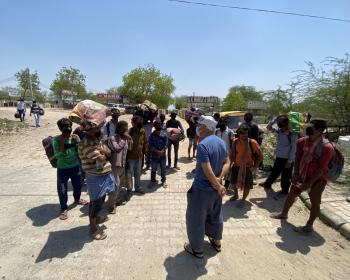workers rights
The pandemic’s changed a lot of ways in which societies are working. How far are these changes temporary and how far permanent? Should governments and businesses leverage these changes or seek to rebuild what’s been lost?
This article takes you through the process of building a work routine to help you avoid paying a hefty physical price for spending hours on a computer. This routine combines active and passive ergonomic practices with a caring mentality to sensitise you about your bodily health while working.
Over 50 days into the lockdown in India, migrant workers are still on the roads walking day and night to reach home one way or another. Lack of employment has left them high and dry with little to no support from the authorities.
The priority at present isn’t digital, but like anything today the coronavirus crisis has implications that are so: how does the digital world impinge on the coronavirus?; how might the coronavirus affect the digital world?
This week, I’ll comment on a new view of long-term employment and unemployment in the digital age, from Oxford economist Daniel Susskind. A World Without Work, he calls it. I’ll agree with his core arguments but challenge the optimism of his conclusion.
The 25th annual LaborFest is taking place 1-31 July in San Francisco, USA, and APC member organisation LaborNet is linking up the use of technology and communication from Silicon Valley to San Francisco and how this is affecting working people in a series of forum's at this year's event.
The top-end of the computer industry is still seen as a sexy place to be. The culture may be designed to wed you to the job, but its a pairing that many professionals envy. And of course, as this week’s protest is designed to highlight, this side of the industry is not where the women are.
LaborTech which holds a semi-annual international labor communication conference has issued a call for paper for the conference which will be held on December 4,5,6&7 at the University of San Francisco in San Francisco.









